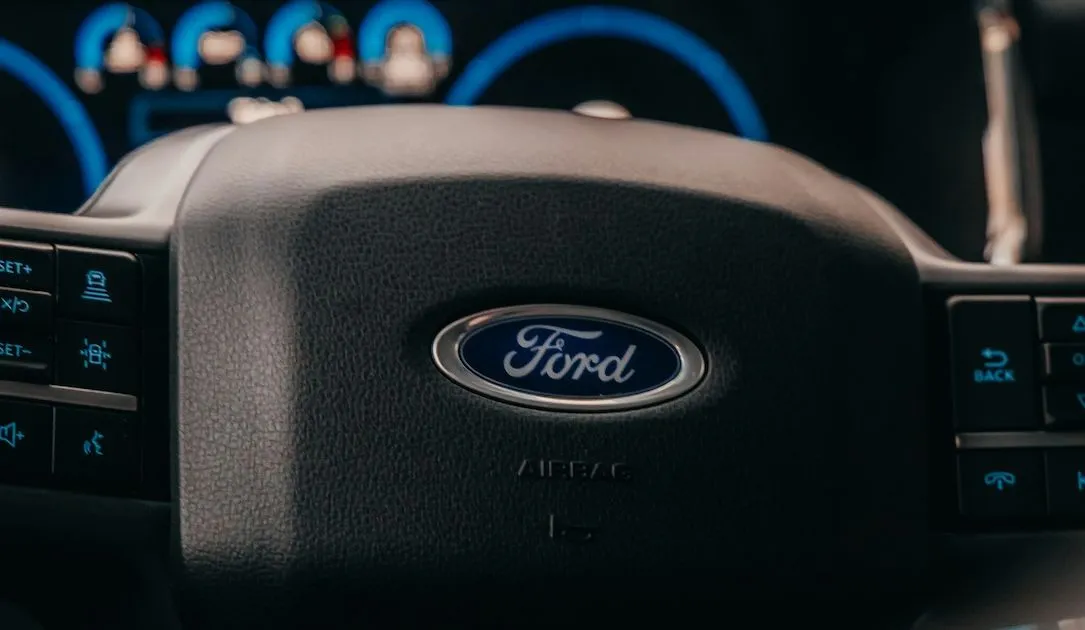
Ford seeks patent for tech that listens to driver conversations to serve ads
A Ford Motoer Company patent application filed in February and published last month proposes software that would monitor in-car conversations and other data to help serve up advertisements.
Article:
Ford seeks patent for tech that listens to driver conversations to serve ads
Ford Motor Company is seeking a patent for technology that would allow it to tailor in-car advertising by listening to conversations among vehicle occupants, as well as by analyzing a car’s historical location and other data, according to a patent application published late last month.
“In one example, the controller may monitor user dialogue to detect when individuals are in a conversation,” the patent application says. “The conversations can be parsed for keywords or phrases that may indicate where the occupants are traveling to.”
The tech — labeled as “in-vehicle advertisement presentation” — will determine where a car is located, how fast it is traveling, what type of road it is driving on and whether it is in traffic. It also will predict routes, speeds and destinations to customize ads to drivers, the application said.
The system could pull data from “audio signals within the vehicle and/or historical user data, selecting a number of the advertisements to present to the user during the trip,” the patent application said.
By monitoring dialogue between vehicle occupants the ad controller system can determine when to deliver audio versus visual ads, providing ads to drivers as they travel “through a human-machine interface (HMI) of the vehicle,” the application said.
“Such systems and methods provide maximum opportunity for ad-based monetization,” the application said. “These systems and methods may use knowledge of vehicle destination prediction to provide more relevant advertisements, for example, if a user is going grocery shopping, merchandise purchasing, etc.”
The patent application does not describe how the collected data would be protected. The technology would be primarily software-based and would require no new hardware, according to the application.
Ford filed the application in February and it was published on August 29. Contents of the application were first reported by Motor1.com.
The auto manufacturer defended the patent application.
"Submitting patent applications is a normal part of any strong business as the process protects new ideas and helps us build a robust portfolio of intellectual property,” a statement from a Ford spokesperson said.
“The ideas described within a patent application should not be viewed as an indication of our business or product plans,” the statement added. In a followup statement, Ford said it "will always put the customer first in the decision-making behind the development and marketing of new products and services."
The system also could cull data from third-party applications or set up screen input preferences to predict the number of ads a driver should be served, the application said.
Types of trips being made by drivers also will play a role, the application said, noting that whether a vehicle owner is making a “long drive versus trip to medical care facility” would be considered by the system.
A Ford patent filed in July proposed technology that would enable vehicles to monitor the speed of nearby cars, photograph them and send the information to police. The idea sparked a backlash from privacy advocates. It is still pending review by the U.S. Patent and Trademark Office.
That application pointed to how hard it is for police to pinpoint speeding cars and said “it is desirable to provide systems and methods that assist traffic police and/or other law enforcement officers [to] perform such tasks.”
Ford quietly walked away from another controversial patent application last October after a firestorm of criticism for its plans for a system that would commandeer vehicles whose owners were late to pay and allow them to repossess themselves.
That patent application said that the technology would allow self-driving cars to automatically head to repossession lots while standard vehicle lenders would be able to permanently lock cars and cripple steering wheels, brakes and air conditioning in order to pressure delinquent drivers to pay.
The third largest car company in the American market, Ford won 12 percent of new vehicle registrations last year, according to Experian.
